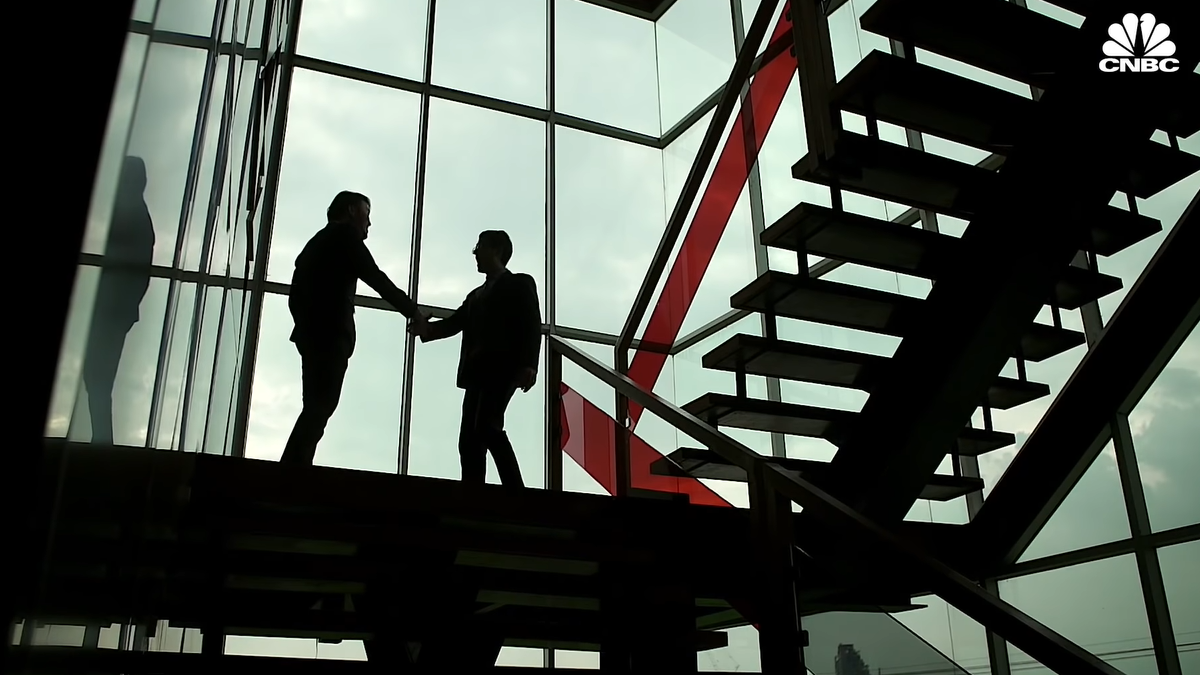Major American corporations that have extensive operations with overseas adversaries stand to benefit from foreign conflicts erupting abroad, whether it be in the interests of the United States or not. The New York-based global consulting giant McKinsey and Company, one of the most powerful companies in the world, is no exception.
The firm’s deep ties with Russian oligarchs and Chinese business leaders built over decades of lucrative deals raise the specter of conflicts of interest as McKinsey rakes in hundreds of millions in federal contracts related to sensitive security systems with the Pentagon. According to NBC News in November, McKinsey has scored more than $850 million in federal contracting dollars with the Defense Department, its top agency client.
Meanwhile, the firm is listed as an industry leader in consulting, with more than 2,000 projects completed in Russia and more underway as it continues to sign new contracts with the Pentagon simultaneously. McKinsey has started work on 10 new projects with the Department of Defense since President Joe Biden took office, according to USASpending.gov.
The dual projects, as geopolitical tensions threaten to escalate to the largest global conflict in decades, are the markings of an American corporation that stands to make a buck wherever it can get it.
Last fall, NBC News highlighted how conflicts of interests have affected McKinsey in other areas, with a $573 million settlement following allegations from 49 states that its work on behalf of opioid manufacturers served to “turbocharge” drug sales that fueled the overdose crisis. The firm was consulting for pharmaceutical companies and the Food and Drug Administration on its prescription drug policy at the same time.
Similar to enterprises owned by the communist regime in China, where McKinsey also conducts extensive business with firms beholden to Beijing demands, Russian firms are heavily influenced by Kremlin intimidation, as outlined in a Monday post for SpyTalk by Dr. Filip Kovacevic, who teaches at the University of San Francisco:
Since the late 1990s, every major Russian company has been forced to allow the SEB (Economic Security Service) to ‘embed’ their officers into its corporate leadership and, in this way, monitor and control the company business activities from the inside. This privileged position provided the SEB—and the FSB as a whole—tremendous leverage over company owners and allowed it to extract million-dollar bribes and personal favors from them. As one former SEB officer said to the Russian investigative journalists Andrei Soldatov and Irina Borogan: ‘The SEB has enough material to close down any major Russian company and jail any of the company owners whenever they want.’ That is the basic truth of the current state of the Russian economy: The FSB holds a gun to the heads of those who run it and whacks them with the barrel (both literally and figuratively) every once in a while.”
As an American-headquartered company, McKinsey itself is likely absent of embedded Russian officers overseeing operations the same way Moscow dictates that domestic firms extract favors under threat of detention. The companies to which McKinsey sells its consulting services certainly are, however, and according to The New York Times in 2018, the firm worked with Russian enterprises already under Western sanctions such as VEB Bank, which was wholly owned by the state.
McKinsey’s relationships with Russian oligarchs, who foster the firm’s operations under President Vladimir Putin’s regime, are also showcased in its role launching a business school in the early 2000s. The Moscow School of Management Skolkovo, the brainchild of former McKinsey Managing Director Rajat Gupta before he was convicted by U.S. prosecutors for insider trading, was supposed to be a premier institution teaching the next generation of business leaders, but it quickly became an oligarch-funded operation infected with nepotism.
Putin’s influence at McKinsey seeped into public view in January last year when one of the firm’s managing partners sent out a directive to employees with instructions to refrain from anti-Putin speech or activity such as participation in the anti-government/pro-Navalny protests.
Vitaly Klintsov, McKinsey’s senior partner in its Moscow office, said the company barred posts on social media “featuring your political views or attitude to any action with a political flavor,” according to The Moscow Times. The email was sent after anti-Putin activist Alexei Navalny was poisoned following a return to Russia.
Klintsov recanted his staff instructions the next day following criticism.
“Some of you have raised concerns about my email to the office yesterday. I admit that the Firm’s policy was incorrectly reflected in that email,” Klintsov wrote, according to the Times. “McKinsey supports its employees’ rights to participate legally and in a personal capacity in civic and political activities across the countries we operate. The recognition of these rights is unqualified.”
McKinsey declined to comment for this story, but a spokesman flagged a letter to the editor the company published in the Financial Times days later on the topic.
“Our Moscow office’s communication fundamentally misrepresented our policies and values,” wrote Ramiro Prudencio, McKinsey’s global director of communications. “It was wrong and should never have been sent.”
Given McKinsey’s three-decade history in Russia and its lucrative interests there, the global firm is unlikely to shy away from new contracts absent harsh sanctions from the U.S. and its allies. From sponsoring hackathons for Moscow students to publishing a specialized Russian-language magazine, the Vestnik McKinsey, to promote its Russian and Moscow-based research, McKinsey’s work illustrates a company empowering foreign adversaries for profit.









